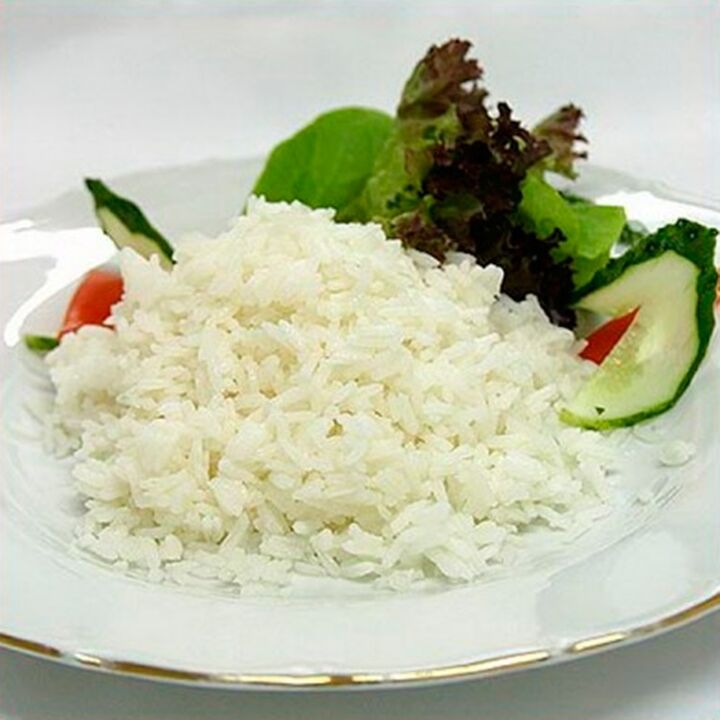
The fourteen-day Japanese diet is suitable for people who want to lose weight very quickly, however, the price for such "pleasure" is very high. This diet is rightly considered one of the strictest and toughest. And this means that, observing it, you will have to abandon your usual diet and exclude most products from your daily diet.
Why does the Japanese diet work? The diet in this case is designed in such a way that you can maintain a normal physical condition of a person, while contributing to the acceleration of metabolic processes in his body and the conversion of fat into energy, or otherterms, to burn this.
By the way, why the diet is called specifically Japanese, no one can answer, since it does not involve the use of rice or seafood, which is the daily diet of the Japanese.
The differences between the Japanese 14-day and 7-day diet are at first glance insignificant. Both eliminate the use of carbohydrate-rich foods. A fourteen-day diet for weight loss gives the best effect, however, it is twice as difficult to survive 14 days without your favorite buns and pies. It should be remembered that you can lose weight with the help of any Japanese diet no more than once a year. Otherwise, you can provoke a deterioration in health.
Japanese diet products for 14 days
List of foods prohibited by the Japanese 14-day diet:
- all alcoholic beverages;
- salt, sugar, spices, seasonings;
- smoked meats, fatty meats, fish;
- pickles;
- black tea, cream;
- melted cheese, butter;
- any animal fat;
- baking, pastries, bread (you can use a small amount of crackers several times a week);
- sweet carbonated drinks.
List of foods allowed by the Japanese 14-day diet:
- black ground coffee;
- all fruits, vegetables: cabbage, carrots, zucchini, tomatoes, cucumbers, lettuce, parsley;
- chicken eggs;
- vegetable oil (sunflower, mustard, olive, etc. );
- lean meat, fish (it is better to boil or steam, for a change you can fry in sunflower oil once a week);
- fat-free kefir;
- mineral water, fruit juice, green tea. The amount of fluid drunk per day should not be less than 2 liters.
It is not recommended to replace the products indicated in the diet menu every day, because this diet was compiled for a reason. Also, don't break the diet for a day or two.
Advantages and disadvantages of the Japanese diet for 14 days
Benefits of the Japanese diet for 14 days:
- almost 100% weight loss result (up to 9 kg in 2 weeks);
- lost weight does not return in future years;
- complete refusal of food, starvation is not assumed;
- helps to eliminate edema, removes unnecessary harmful substances from the body.
And now for the cons. The Japanese diet, which must be followed for 14 days, in most cases leads to a deterioration in well-being. Acceleration of metabolism, low-calorie nutrition, of course, cannot go unnoticed by the body. Usually women try to lose weight this way.
Many of those who have already tried the effect of the weight loss method on themselves admit that in the first days of the diet they felt a strong feeling of hunger that did not leave them even after eatingfood. About half of the women who lose weight using the 14-day Japanese diet reported that after a two-week diet change, their health deteriorated sharply, some illnesses worsened. Therefore, before starting to lose weight, it is always recommended to consult a doctor and undergo a medical examination of the body. Gastritis is unlikely to occur against the background of a two-week change in nutrition, but in order for the inflammation of the gastric mucosa to worsen, this time is just enough.
You should not follow the Japanese diet for people with high blood sugar, thyroid disorders, cardiovascular disease. Some of the foods prescribed by this diet can also be harmful. For example, starting the day with a cup of strong coffee should not suit those who often suffer from high blood pressure, manifestations of gastritis or stomach ulcers.
The diet should be abandoned if its observance is accompanied by alarming symptoms: dizziness, fainting, loss of appetite, pain of varying intensity in the stomach, intestines, nausea, changes in stool, headache.
It is very difficult to stick to a certain diet for a person who spends most of the day away from home. Okay, sometimes at work there isn't even a minute of free time just to have a snack, let alone meals on time. Therefore, in order to lose weight on this diet, it is better to choose a vacation period.
Housewives in this case are much easier. However, if you do not live alone, be aware that for 14 days you will also have to cook ordinary food for households (they do not make you lose weight! ) or, at the limit, be present during its preparation, which is very difficult. . If you have already decided to lose weight in this way, show patience and willpower.
After the 14 day period is over, it is important to exit the diet properly. Do not lean immediately on high-calorie foods, you can afford something sweet (a small portion). With poor nutrition, after the end of the diet, part of the excess weight will return, and quite quickly.
In case the Japanese diet seems too heavy for you, remember that there are people who voluntarily refuse to eat a large amount of food, eat only vegetables, fruits and cereals (vegans, raw food, fruitarians), feeling well and not having health problems. If a person likes to eat exclusively plant foods without feeling discomfort, then you can also follow a low-calorie diet for only 2 weeks.





















